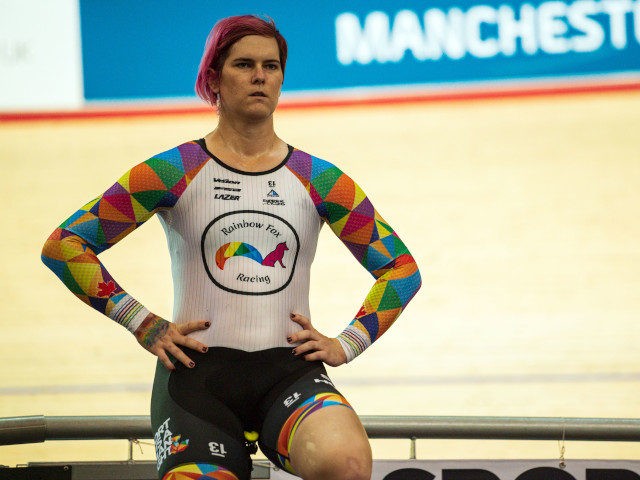The 9th Circuit Court of Appeals heard Monday the lawsuit brought by a young man who is living as a woman and wants to take part in women’s sports at Boise State University in the fall.
The plaintiff, represented by the left-wing American Civil Liberties Union (ACLU), is claiming that preventing people from participating in sports based of their biological sex violates the Constitution.
Two female students allowed to intervene in the case, represented by the conservative Christian legal group Alliance Defending Freedom (ADF), are arguing the plaintiffs lack standing, their claims are not ripe for review, that certain claims fail as a matter of law, and they are not entitled to injunctive relief.
Taxpayer funded National Public Radio (NPR), which regularly promotes transgenderism in its reporting, spoke to the athlete that filed the lawsuit and used the LGBT activists’ definition of biological women who accept their sex as “cisgender:”
For plaintiff Lindsay Hecox, a student at Boise State University, the answer to that question is clear. She is transgender, and Idaho’s law, if upheld, would prohibit her from competing on women’s teams.
But 19-year-old Madison Kenyon, who is cisgender, takes the opposite view. She runs track and cross-country at Idaho State University, and signed on as a party in the case, asking that Idaho’s law be upheld.
“I’m just a 20-year-old girl, and I just want to be able to compete,” Hecox says. “It was just so blatantly wrong for politicians to legislate this.”
“To step on the field and have it not be fair and to get beat by someone who has advantages that you’ll never have, no matter how hard you train — it’s so frustrating,” Kenyon says. “What I’m fighting for is to preserve the integrity in women’s sports and to make sure that it’s a fair playing field.”
The “Little”’ in the lawsuit is Bradley Little, the governor of Idaho who signed the Fairness in Women’s Sports Act into law — the first of its kind but one of dozens being crafted, debated, and even put in place through an Executive Order across the country. The law preserves women sports as a space specifically for biological females to compete.
As Breitbart News reported, the ADF is representing female athletes who are seeking a fair playing field, including three in Connecticut:
The ADF interviewed Selina Soule, one of three high school athletes in Connecticut who sued the state’s athletic association for allowing biological men to compete against biological women based on their gender identity:
During Selina’s four years in high school, that policy resulted in two biological males winning 15 women’s state championship titles in track and field—titles that were previously held by nine different girls. Within just three years, girls across the state were denied over 85 chances to compete in elite athletic competitions.
Selina was one of those girls. Clearly, this policy isn’t fair. Men and women are different—and those differences matter, particularly in athletes. A majority of Americans agree. Recent polls show that 74 percent of Californians and 77 percent of likely voters from swing states oppose male athletes competing in women’s sports.
“Why is it so important for girls and women to have separate sports teams?” the ADF asked Soule. Soule replied:
Boys will always have a physical advantage over girls. That’s why we have women’s sports in the first place. Science and common sense show us that boys are, on average, stronger and faster than girls. So it’s fundamentally unfair to let male athletes come in and dominate girls’ sports.
Idaho’s Fairness in Women’s Sports Act’s sponsor, Republican state Rep. Barbara Ehardt, a former college basketball player and career coach, is working with ADF, NPR reported. She says:
Some have labeled these as transgender bills, falsely so. I don’t see that at all. This legislation, it doesn’t care how you identify. That’s the beauty of it. You can identify however you want. This is all about sex, because in the arena of sport, one’s biological sex matters. It just simply does. You can’t get around that.
The case is Hecox v. Little Nos. 20-35813, 20-35815 in the U.S. Court of Appeals for the Ninth Circuit.
Follow Penny Starr on Twitter or send news tips to pstarr@breitbart.com

COMMENTS
Please let us know if you're having issues with commenting.